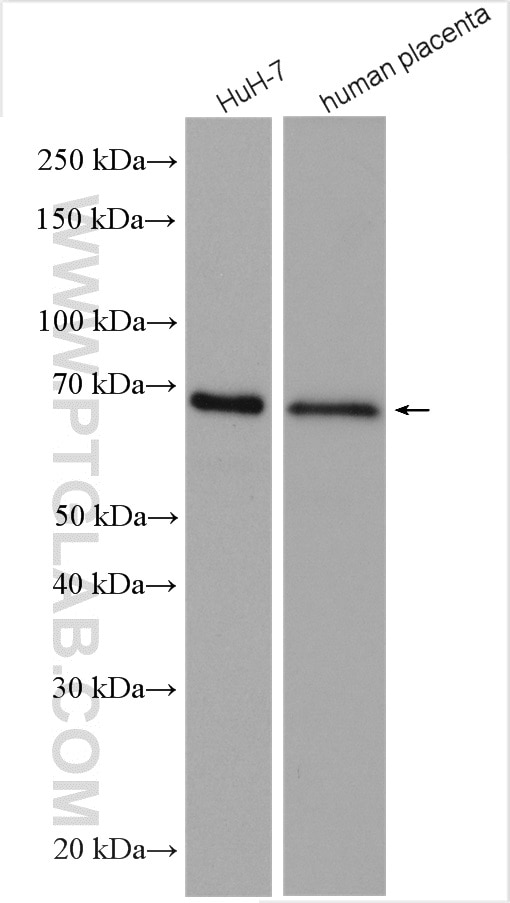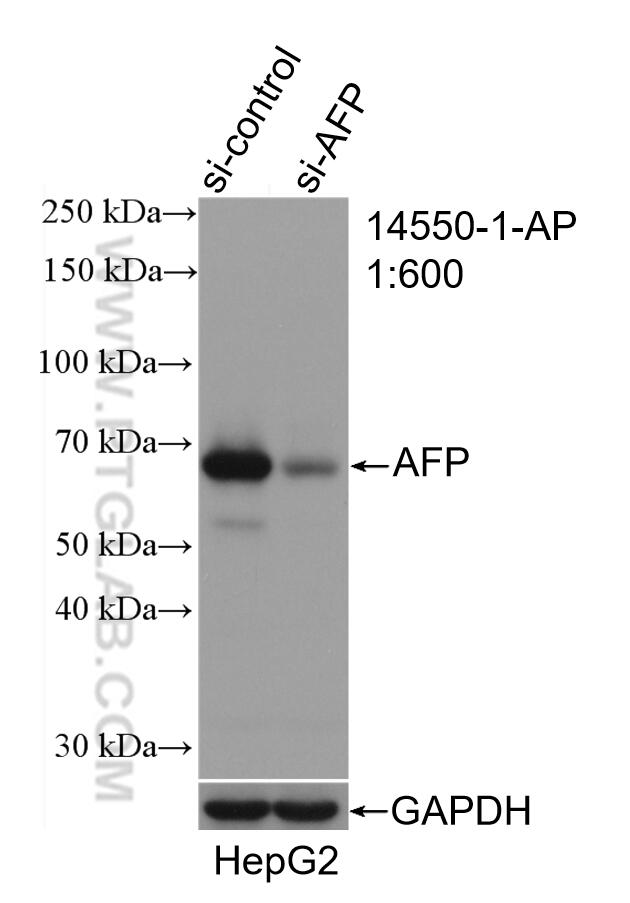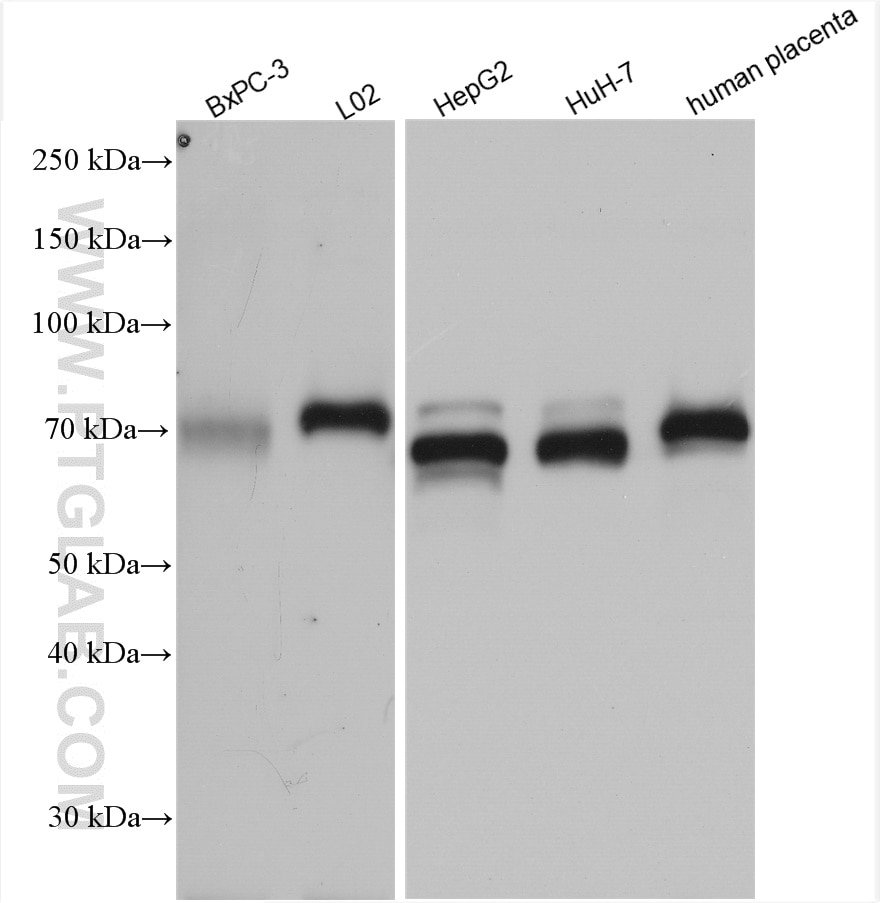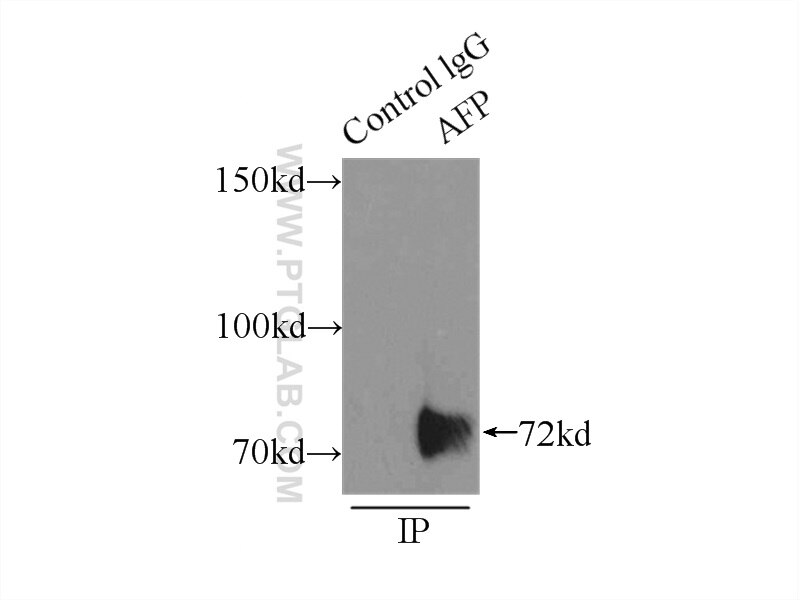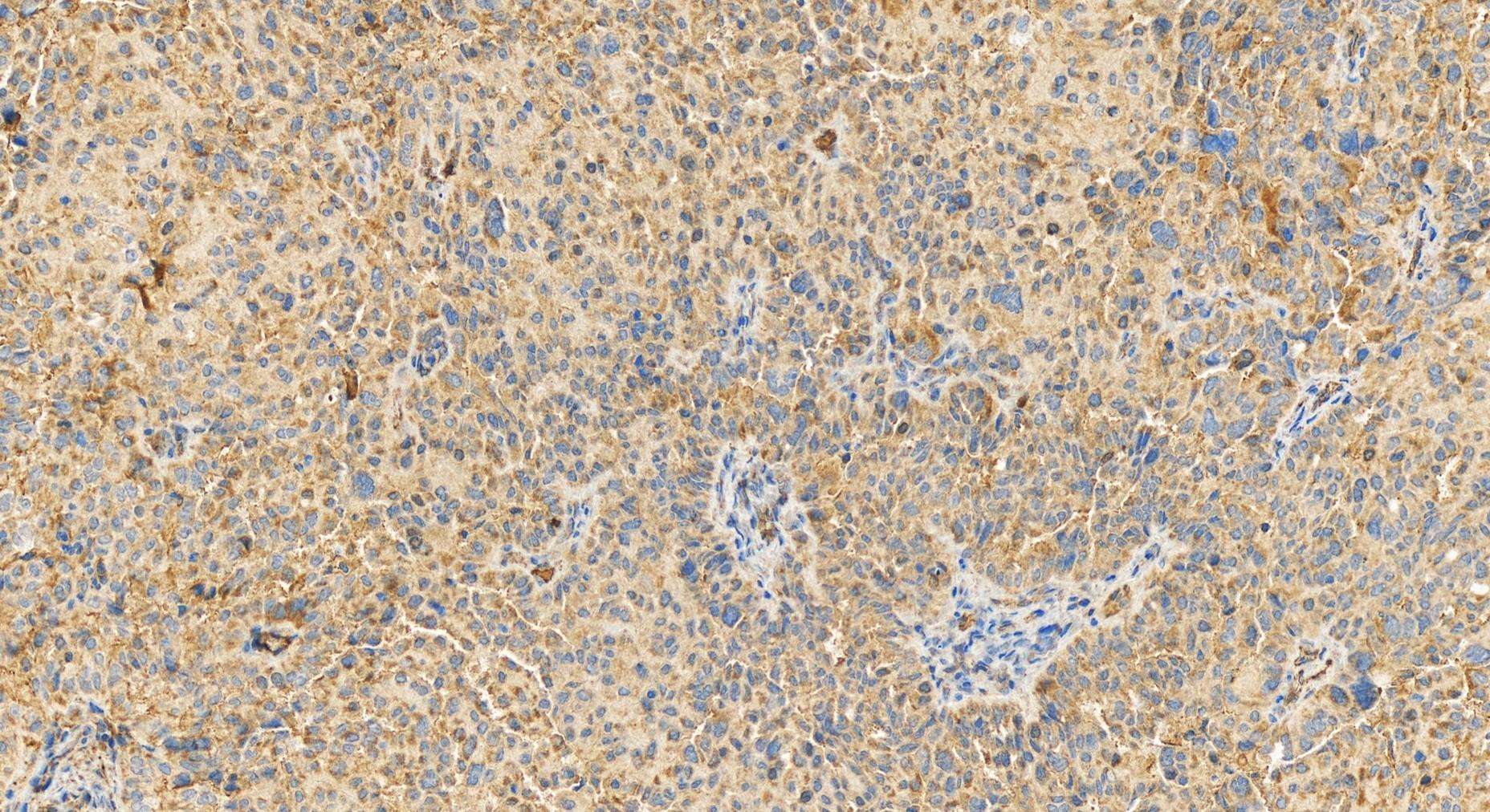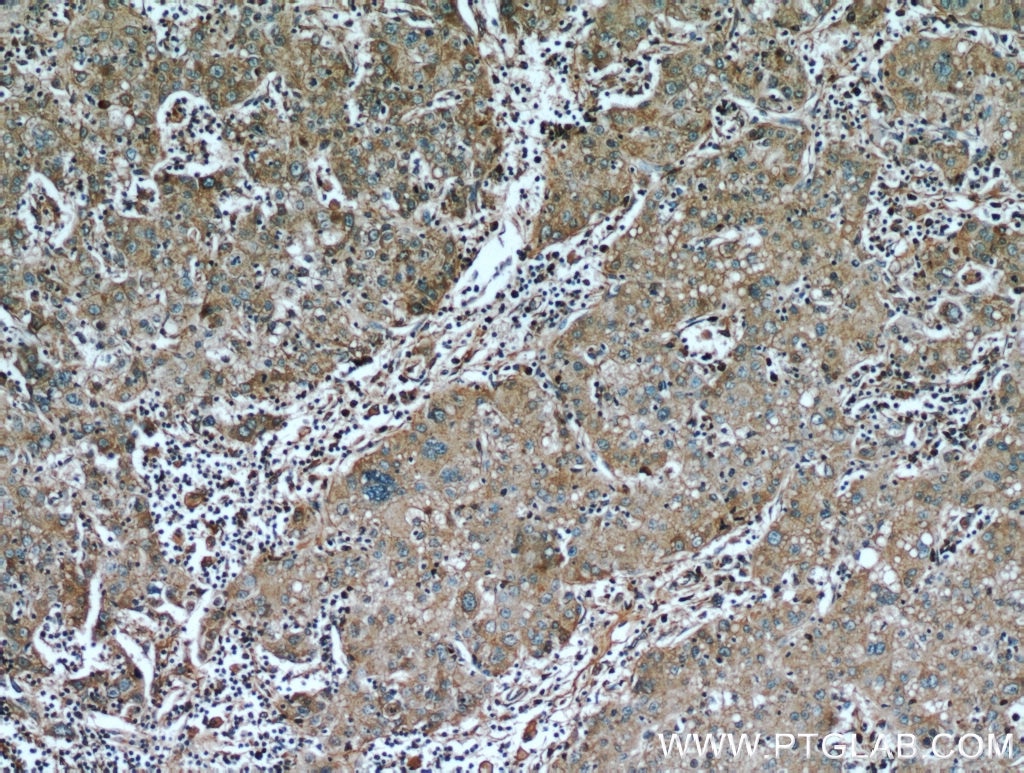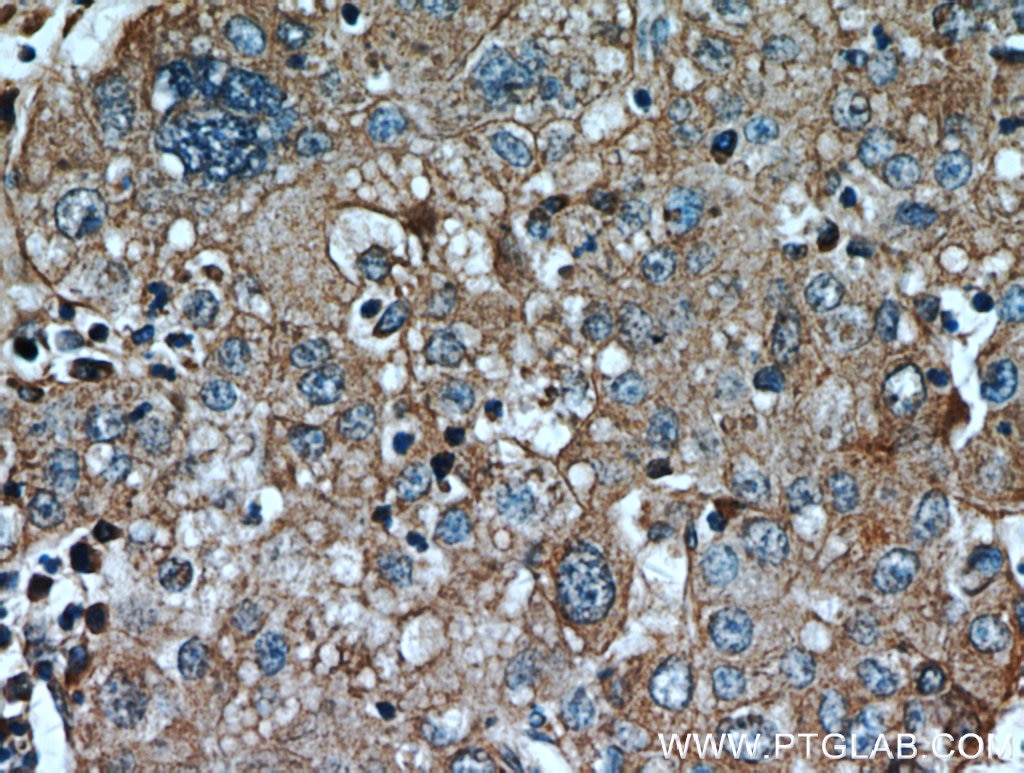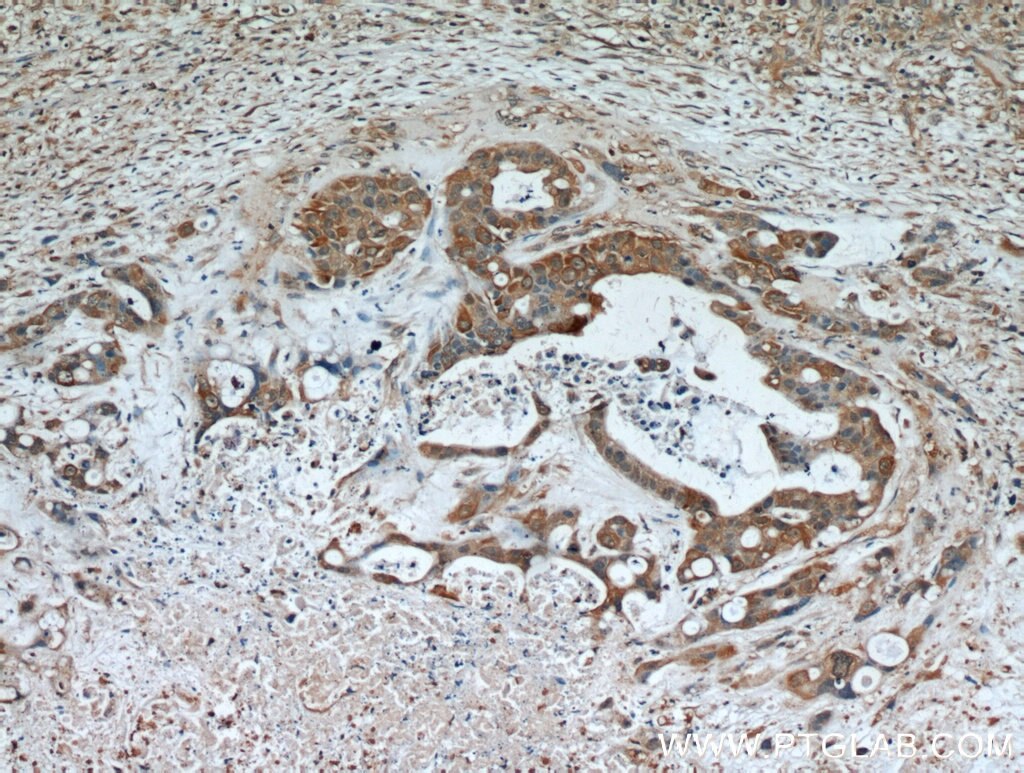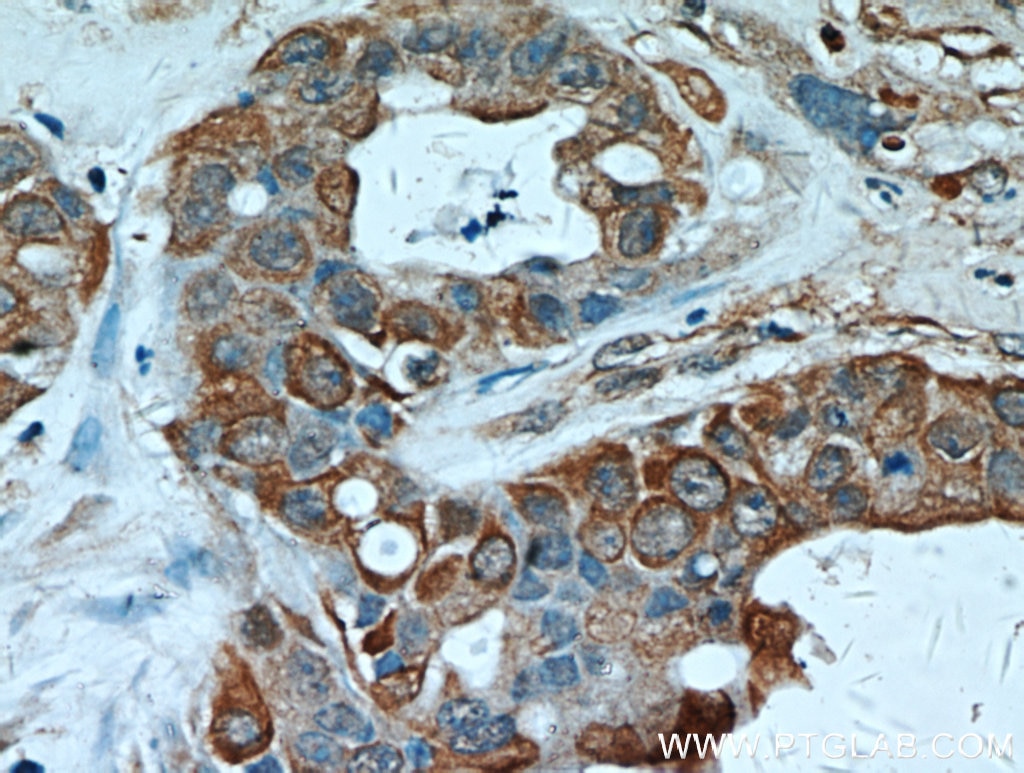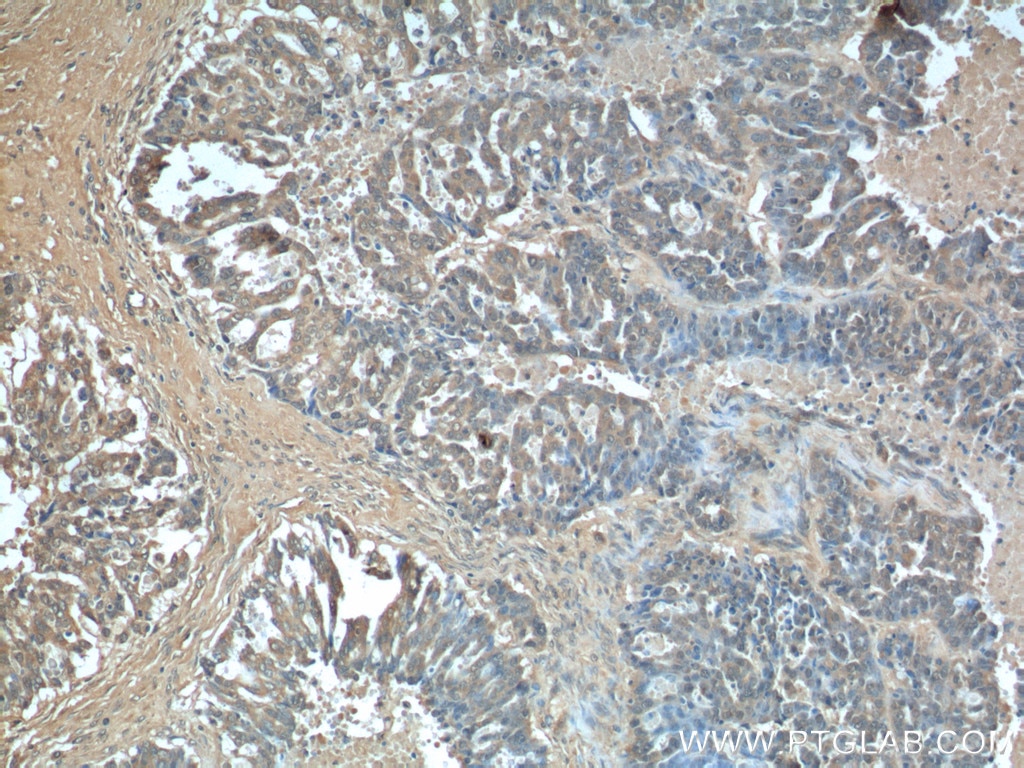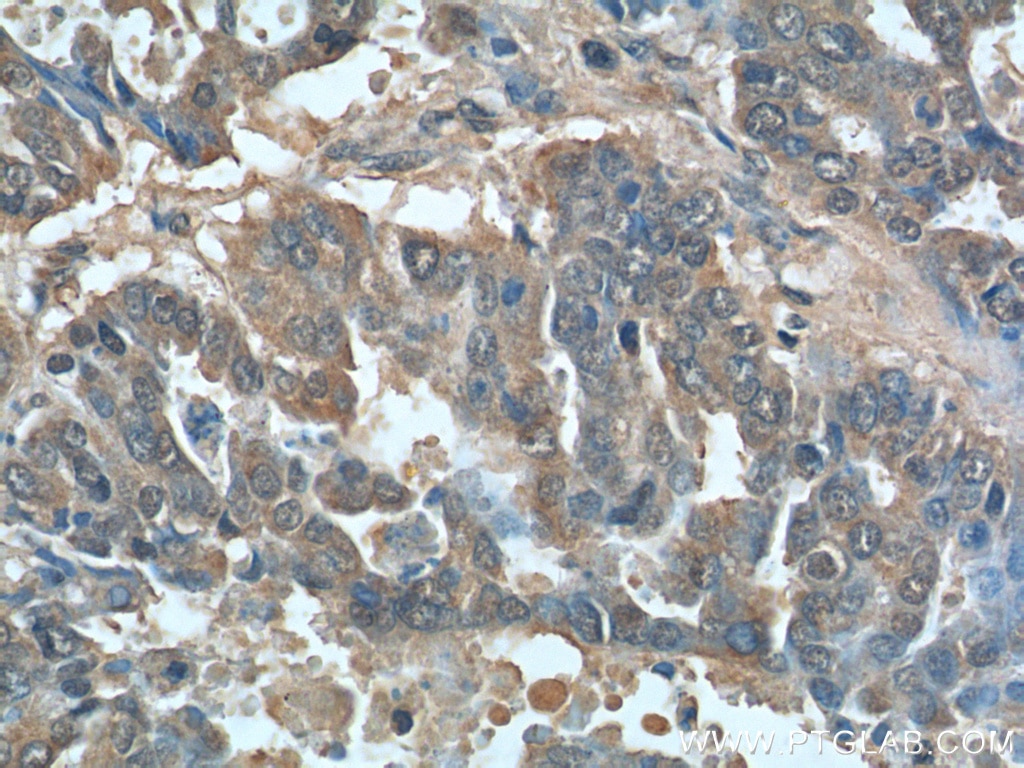- Featured Product
- KD/KO Validated
AFP Polyklonaler Antikörper
AFP Polyklonal Antikörper für WB, IHC, IP, ELISA
Wirt / Isotyp
Kaninchen / IgG
Getestete Reaktivität
human und mehr (3)
Anwendung
WB, IHC, IF, IP, CoIP, ELISA
Konjugation
Unkonjugiert
Kat-Nr. : 14550-1-AP
Synonyme
Geprüfte Anwendungen
| Erfolgreiche Detektion in WB | BxPC-3-Zellen, HepG2-Zellen, HuH-7-Zellen, humanes Plazenta-Gewebe, L02-Zellen |
| Erfolgreiche IP | HepG2-Zellen |
| Erfolgreiche Detektion in IHC | human ovary cancer tissue, humanes Leberkarzinomgewebe, humanes Ovarialkarzinomgewebe Hinweis: Antigendemaskierung mit TE-Puffer pH 9,0 empfohlen. (*) Wahlweise kann die Antigendemaskierung auch mit Citratpuffer pH 6,0 erfolgen. |
Empfohlene Verdünnung
| Anwendung | Verdünnung |
|---|---|
| Western Blot (WB) | WB : 1:2000-1:10000 |
| Immunpräzipitation (IP) | IP : 0.5-4.0 ug for 1.0-3.0 mg of total protein lysate |
| Immunhistochemie (IHC) | IHC : 1:250-1:1000 |
| It is recommended that this reagent should be titrated in each testing system to obtain optimal results. | |
| Sample-dependent, check data in validation data gallery | |
Veröffentlichte Anwendungen
| WB | See 36 publications below |
| IHC | See 50 publications below |
| IF | See 54 publications below |
| FC | See 1 publications below |
| CoIP | See 1 publications below |
Produktinformation
14550-1-AP bindet in WB, IHC, IF, IP, CoIP, ELISA AFP und zeigt Reaktivität mit human
| Getestete Reaktivität | human |
| In Publikationen genannte Reaktivität | human, Maus, Ratte, Ziege |
| Wirt / Isotyp | Kaninchen / IgG |
| Klonalität | Polyklonal |
| Typ | Antikörper |
| Immunogen | AFP fusion protein Ag6089 |
| Vollständiger Name | alpha-fetoprotein |
| Berechnetes Molekulargewicht | 69 kDa |
| Beobachtetes Molekulargewicht | 68-72 kDa |
| GenBank-Zugangsnummer | BC027881 |
| Gene symbol | AFP |
| Gene ID (NCBI) | 174 |
| Konjugation | Unkonjugiert |
| Form | Liquid |
| Reinigungsmethode | Antigen-Affinitätsreinigung |
| Lagerungspuffer | PBS with 0.02% sodium azide and 50% glycerol |
| Lagerungsbedingungen | Bei -20°C lagern. Nach dem Versand ein Jahr lang stabil Aliquotieren ist bei -20oC Lagerung nicht notwendig. 20ul Größen enthalten 0,1% BSA. |
Hintergrundinformationen
AFP (Alpha-fetoprotein) is a major plasma protein in the fetus and its concentration is very low in the adult (PMID:24120489). AFP can be detected at abnormally high concentrations in hepatocellular carcinomas as well as in the plasma and ascitic fluid of adults with hepatoma, indicating that AFP can serve as a tumor marker (PMID: 18669658). AFP is also a glycosylated protein and based on its binding capability to lectin Lens Culinaris Agglutinin (LCA), and total AFP can be separated into three different glycoforms, AFP-L1, AFP-L2, and AFP-L3. Core-fucosylated form of AFP (AFP-L3) is a more specific indicator than total AFP for HCC (PMID: 33128033, 35458505)
Protokolle
| PRODUKTSPEZIFISCHE PROTOKOLLE | |
|---|---|
| WB protocol for AFP antibody 14550-1-AP | Protokoll herunterladen |
| IHC protocol for AFP antibody 14550-1-AP | Protokoll herunterladenl |
| IP protocol for AFP antibody 14550-1-AP | Protokoll herunterladen |
| STANDARD-PROTOKOLLE | |
|---|---|
| Klicken Sie hier, um unsere Standardprotokolle anzuzeigen |
Publikationen
| Species | Application | Title |
|---|---|---|
Cancer Cell Genomic and Transcriptomic Profiling of Combined Hepatocellular and Intrahepatic Cholangiocarcinoma Reveals Distinct Molecular Subtypes. | ||
Nat Commun ATAXIN-2 intermediate-length polyglutamine expansions elicit ALS-associated metabolic and immune phenotypes | ||
J Clin Invest Hepatocellular carcinoma originates from hepatocytes and not from the progenitor/biliary compartment. | ||
J Clin Invest HMGB1 links chronic liver injury to progenitor responses and hepatocarcinogenesis. | ||
Nat Commun Growth differentiation factor 1-induced tumour plasticity provides a therapeutic window for immunotherapy in hepatocellular carcinoma. |
